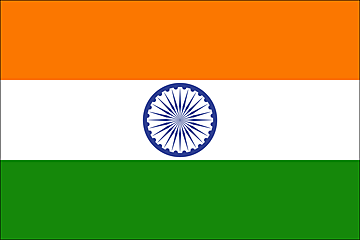ANALYSIS: Indian parties make, break alliances ahead of elections
 New Delhi - Indian general elections have resulted in fractured verdicts, hung parliaments and governments formed or supported by multiple political parties for most of the past two decades.
New Delhi - Indian general elections have resulted in fractured verdicts, hung parliaments and governments formed or supported by multiple political parties for most of the past two decades.
As the world's largest democracy gears up for its 15th general election starting April 16, leaders of political parties are engaged in frenetic parleys to cobble together pre-poll alliances which they hope will be winning combinations or, at least, yield numbers that may give them a say in the formation of the next government.
No single party has won a majority in India's 545-member Lok Sabha or lower house of Parliament since 1984.
The leader of the single-largest party in the Lok Sabha is usually invited to form a government and has to prove that he has the support of a majority of lawmakers.
India's incumbent United Progressive Alliance government is led by the Congress Party, formally known as the Indian National Congress, a party that had parliamentary majority for more than 30 years since India's independence from British colonial rule in 1947.
Its main rival is another alliance, the National Democratic Front - led by the Hindu nationalist Bharatiya Janata Party (BJP), which lost the last general election in 2004 after running a coalition government for five years.
The shrinking clout of national parties like the Congress Party and the BJP has come hand in hand with the growing power of regional and smaller parties over the past two decades.
Often one or more of these parties end up calling the shots on the formation of the federal government as India's over 700-million-strong electorate repeatedly throws up hung parliaments.
The myriad parties are in a way a reflection of India's diversity and its contradictions and the varying aspirations of communities and regional groups as they look for a piece of the pie by electing representatives they feel would best serve their interests.
A total of 215 parties took part in the 2004 general elections, according to India's Election Commission, an independent body that oversees elections. Only 42 of these parties were "recognized parties," while the rest were registered but not recognized.
The Election Commission recognizes only six parties as national parties, indicating they have a nationwide presence.
These are the Congress Party, the BJP, the two main left parties - Communist Party of India and Communist Party of India (Marxist) - the Bahujan Samaj Party (BSP) that claims to represent the backward castes of India's archaic caste system and the Nationalist Congress Party (NCP) which is a breakaway faction of the Congress Party.
In the coming election, parties looking to dictate terms in New Delhi include the BSP and the Samajwadi Party, both largely based in the populous northern Uttar Pradesh state which sends the largest number of 80 members to the Lok Sabha and a forum of left parties.
Since election dates were announced on March 2, there has been both coming together and falling apart of traditional friends and foes.
The left parties, which had supported Prime Minister Manmohan Singh's government for a large part of the latter's five-year tenure, are promoting a Third Front of non-Congress, non-BJP parties.
The forum, which includes several regional parties, held an election rally in southern Karnataka state on Thursday and a meeting in Delhi Sunday to work out electoral strategy.
BSP leader and Uttar Pradesh Chief Minister Mayawati, supports the alliance but said on Sunday that her party would not enter any seat- sharing arrangements with other parties and was confident of good results on its own.
"The Congress and the BJP must be stopped from coming to power at any cost," she said at a press briefing in Delhi hours before hosting a dinner for the Third Front leaders. "We will discuss election strategy," she said when asked what the dinner was about.
Mayawati has made no bones about her prime ministerial ambitions. She wants to be India's first Dalit premier. But the left party leaders have said a prime minister can be chosen only after the elections.
Both the Congress Party and the BJP have been dismissive about the Third Front, but party sources say this coming together of disparate elements is worrying as they may create three-cornered contests.
At the official briefings, leaders - whether its the BJP's prime ministerial candidate LK Advani, or senior Congress Party leader Pranab Mukherjee, or the BSP's Mayawati exude confidence.
In the back offices, middle-level functionaries, who deal daily with grassroots workers, admit that 2009 general elections seems fraught with uncertainties.
"Pre-poll alliances will give way to post-poll alliances. Most of these parties can swing anyway at any time to ensure they have a share of power at the centre," a veteran Congress Party leader said.
Elections are scheduled to be held in five phases between April 16 to May 13. The results are expected on May 16. dpa